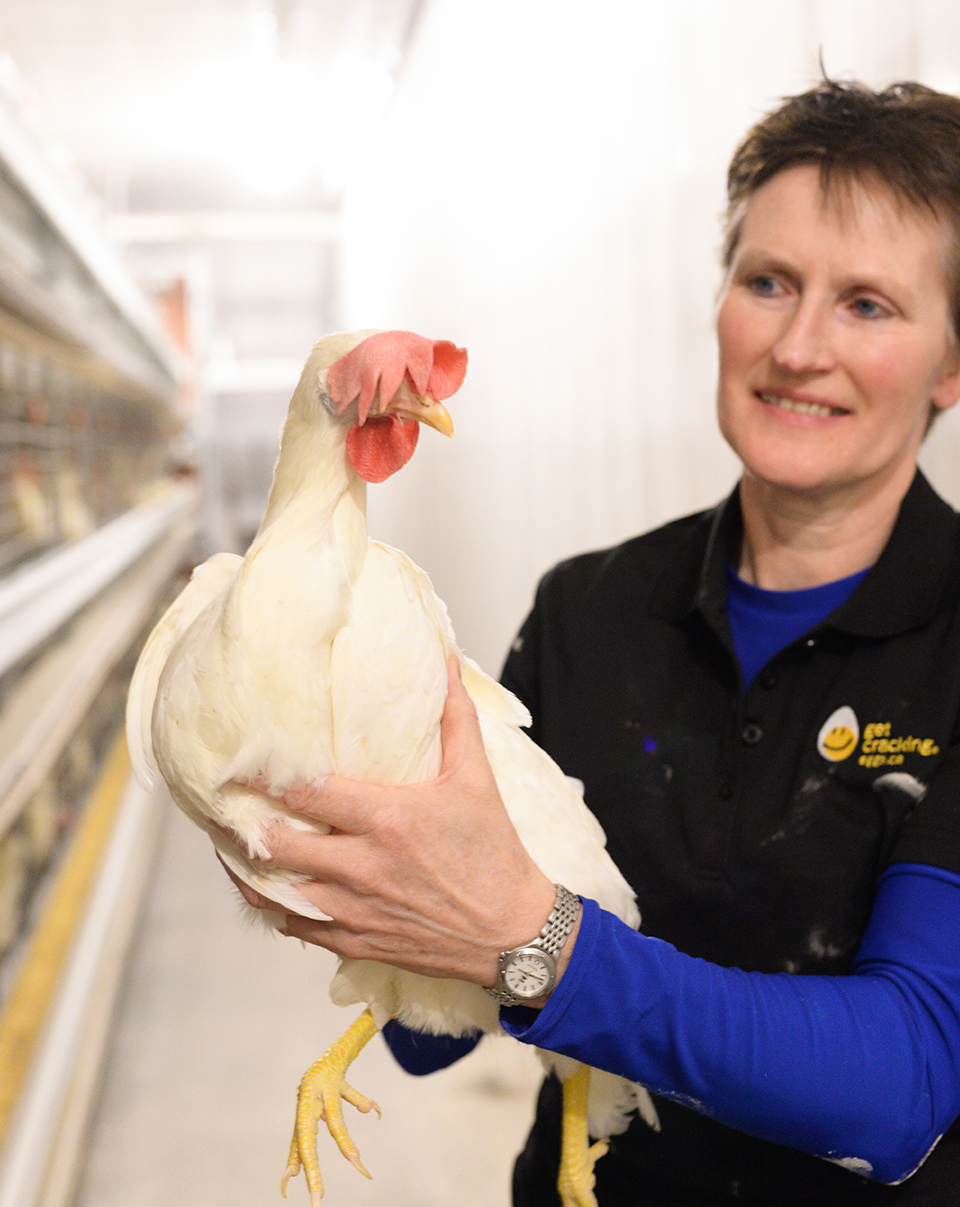
In a sparse Canadian corner, local food from a Canadian egg farmer
By Egg Farmers of CanadaA veterinarian, a dairy farmer, a community leader, an industry advocate and now an egg farmer—these are all things you could say about Pauline Duivenvoorden.
This New Brunswick native and second generation Dutch-Canadian is a uniquely multi-faceted farmer whose career working with animals is as colourful as the Atlantic landscape she calls home. Alongside her husband, Phil MacLean, she’s hanging a new achievement on her belt: one of Western Newfoundland’s latest egg farmers. We spoke to her about a lifetime working on farms and bringing a new source of fresh, locally produced eggs to this sparsely populated corner of Canada.
Pauline grew up on her parents’ New Brunswick dairy farm. After attending agriculture college in Nova Scotia, Pauline and Phil moved to Ontario, where Pauline attended veterinary college. Nearing graduation, opportunity manifested before her eyes.
“I saw a job board bulletin for a role in Western Newfoundland, working with agricultural animals there,” she remembers, “and I knew it was right for us. I wanted to go back to Atlantic Canada and this was the way to do it.”
Pauline was serving a unique area of the country—a 750 kilometre stretch of Western Newfoundland, from Channel-Port aux Basques in the southwest, to the ancient Viking landing site of L’Anse aux Meadows in the Great Peninsula.1 It is a microcosm of Canada itself: sparsely populated yet rich in natural treasures.
While Pauline was putting up to 125,000 km a year on her pickup truck as a veterinarian, her husband settled into dairy farming. By 1999, they owned their own dairy farm—and Pauline had moved full-time onto the farm.
The lessons of veterinary work served her well.
“Veterinarians rely on the farmer to give us information about an animal when we diagnose,” notes Pauline. “Attention to detail is critical when you’re a farmer.”
And the network of farmers Pauline supported as a veterinarian has helped her in spades. So, as she transitioned into life as a full-time farmer, she found herself part of a community.
Pauline and Phil became egg farmers in 2017 thanks to the Egg Farmers of Newfoundland and Labrador New Entrant Program—a program designed to make it easier for new egg farmers to get a start in the industry. They love working with their enriched colony housing system in their new barn. It allows the hens to exercise their natural behaviours, with plenty of space, perches, pads for scratching, easy access to water and food and more.
“Seeing the contentedness of our birds has been great,” says Pauline.

Joining the egg industry made sense for Pauline. Like dairy, egg farming operates under supply management—a policy that has made a powerful difference for Canadians, ensuring a fair return for farmers while offering Canadians a consistent supply of fresh, local eggs. Pauline describes supply management as critical to the long-term sustainability of the sector. “My parents operated their farm without supply management, and I saw up close the day-to-day uncertainty of their circumstances,” she adds.
Offering a new source of locally produced eggs in Western Newfoundland has drawn in much interest and local attention. In Pauline’s eyes, it has reengaged the public’s interest in local food—and it’s that same public which Pauline wants to serve. She believes being an active part of the community is important for the agricultural sector.
“We put a viewing window into our barn so neighbours could see what’s going on. Giving them the knowledge, showing them how their food is made, is so important.”
And it truly is their food. The eggs Pauline produces are primarily consumed right in Newfoundland, by many of the friends and neighbours peering into her viewing window. That’s the beauty of supply management at work.
Pauline and Phil are determined to grow the community’s knowledge of agriculture in every way. They host school tours each spring and fall, set up shop at local fairs and are active members of their community.
“It’s important for farmers to start telling their stories,” Pauline says, “in a time when most Canadians are living in cities. Many people are removed from agriculture now. We want them to be confident in what we do. We want them trusting us. That means reaching out.”